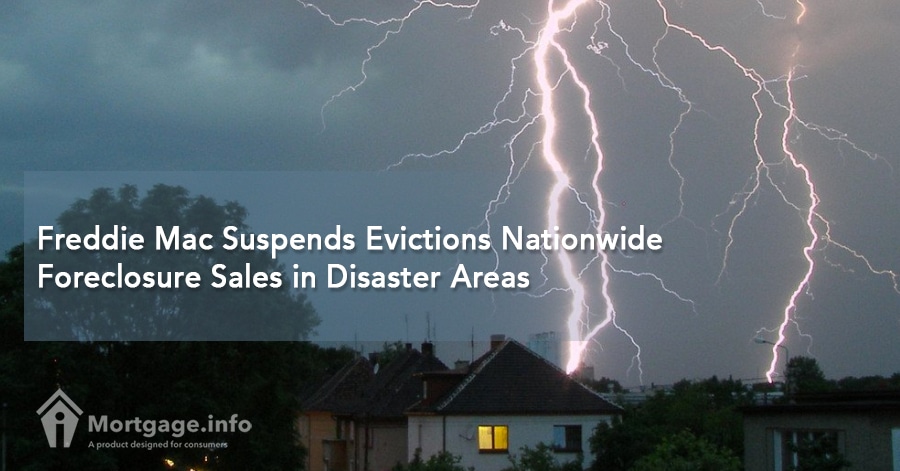Borrowers with foreclosed homes owned by Freddie Mac are in for a good news this holiday season: the agency is suspending eviction lockouts nationwide until January next year.
This is accompanied by a separate suspension of foreclosure sales in eligible areas hit by hurricanes Irma, Harvey, and Maria through the end of this year, as confirmed by Freddie Mac’s Dec. 11 announcement.
Let’s start with the moratorium on eviction lockouts.
Eviction Lockouts Suspended Until Jan. 2
Beginning Dec. 18, 2017 to Jan. 2, 2018, scheduled eviction lockouts will be suspended on all foreclosed, occupied single-family homes and two-to-four-unit properties, i.e. Freddie Mac real estate owned property.
Eviction lockout is not eviction in itself; there’s a process involved in evicting a former owner of the home.
Freddie Mac makes clear that this suspension will not interfere with other foreclosure activities. And this won’t stop companies who manage local evictions on its behalf to file the necessary documentation for eviction.
Freddie’s “sibling”, Fannie Mae also enforced a suspension of evictions with respect to its foreclosed, owned properties.
The moratorium period is also the same as Freddie’s — from Dec. 18 to Jan. 2. During this period, a family can still remain in the home owned by Fannie while legal and administrative eviction proceedings may be or are ongoing.
It isn’t the first time for either to announce a holiday eviction suspension, both government-sponsored enterprises (GSEs) made one last year and years before that.
Foreclosure Sales Suspended Through Dec. 31
Freddie Mac is also suspending foreclosure sales in eligible disaster areas devastated by Irma, Harvey, or Maria through December 31, 2017.
This is part of Freddie’s mortgage relief assistance for homeowners living or employed in areas affected by hurricanes, wildfires, or any other natural disaster declared by FEMA and with mortgages owned by the GSE.
Freddie notes that in eligible disaster areas, the mortgage servicer/company has the authority to do the following: (i) hold off payments up to a year on a mortgage, (ii) waive late fees as a result of late payment on the mortgage, or (iii) temporarily suspend reporting delinquent mortgage activity to the three credit bureaus.
Moreover, distressed borrowers — whether their financial hardship stems from the disaster or not — may be eligible for Freddie Mac’s standard loan modification or forbearance options.
Avoiding Foreclosure
Under a foreclosure sale, the lender initiates a legal case to recover the unpaid loan balance from the borrower by selling the property securing the loan.
Those above are options to deter the lender from foreclosing on the property and the homeowner ultimately losing it.
Freddie Mac VP of Single-Family Servicer Performance Management Yvette Gilmore has called on borrowers experiencing problems with their mortgages to contact their loan servicers without delay.
They, together with their loan servicer, may be able to work out a viable option alternative to foreclosure.
If successful, these distressed borrowers can join the ranks of more than 1.3 million that Freddie Mac has helped to avoid foreclosure since 2009.

